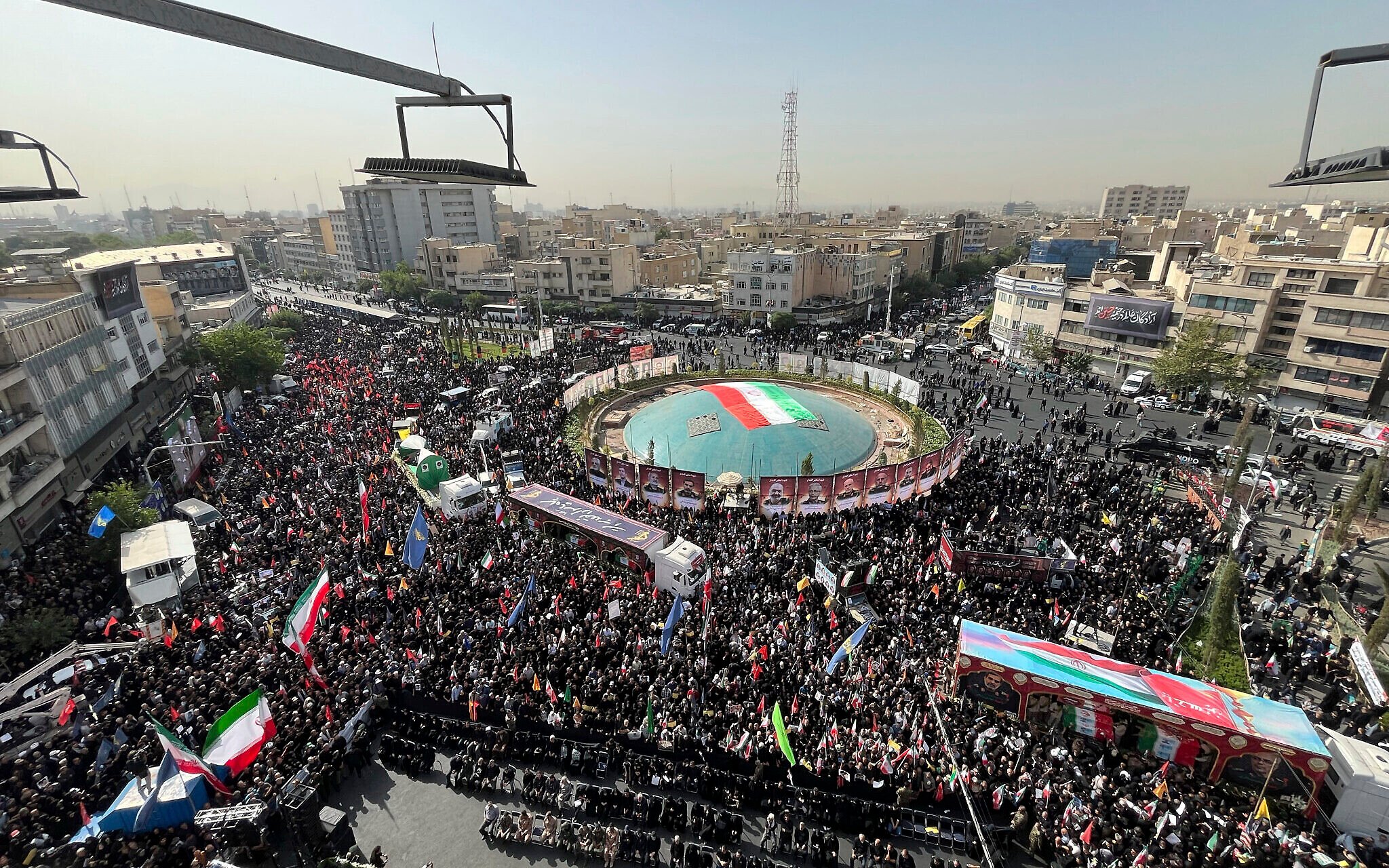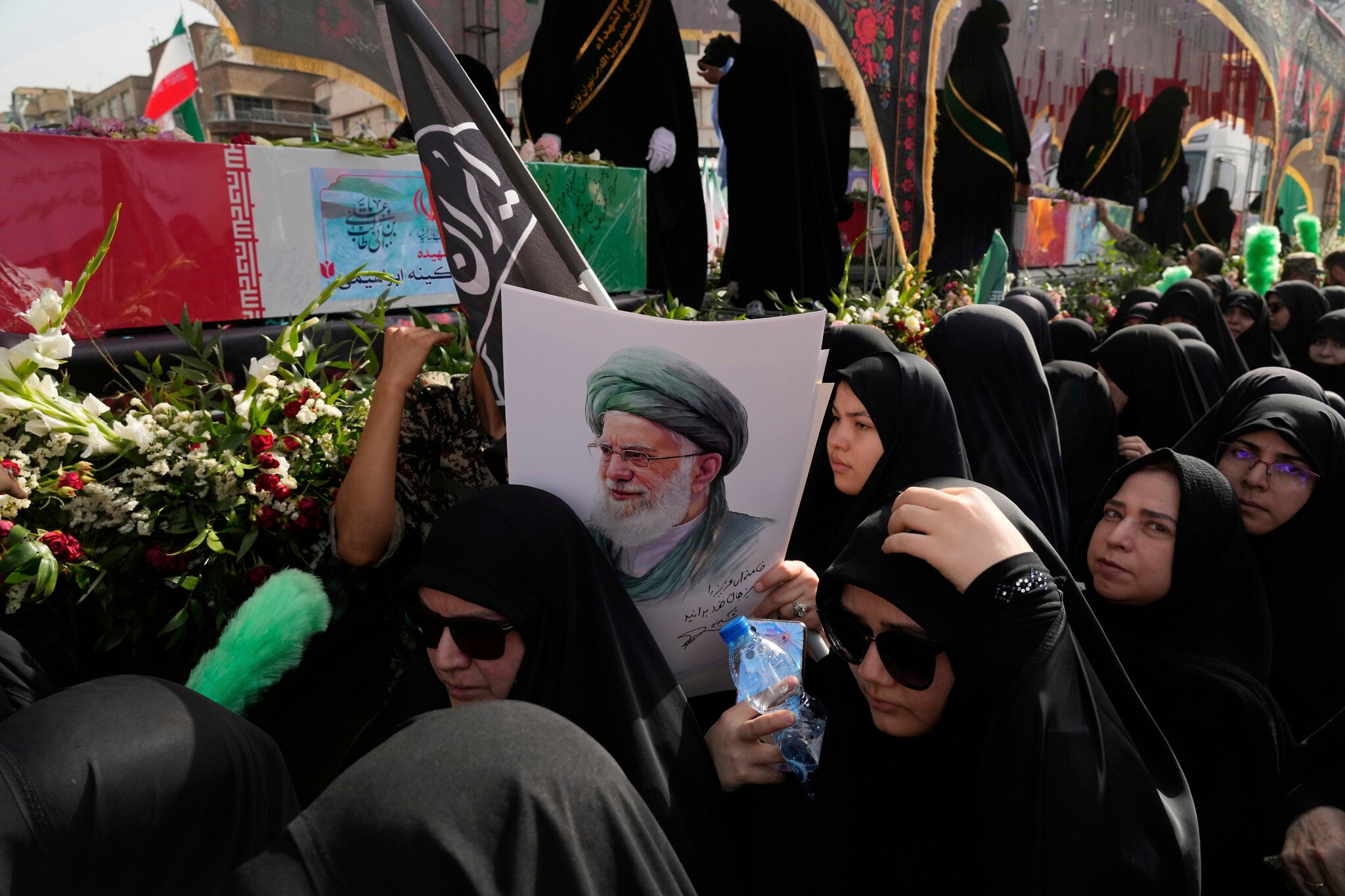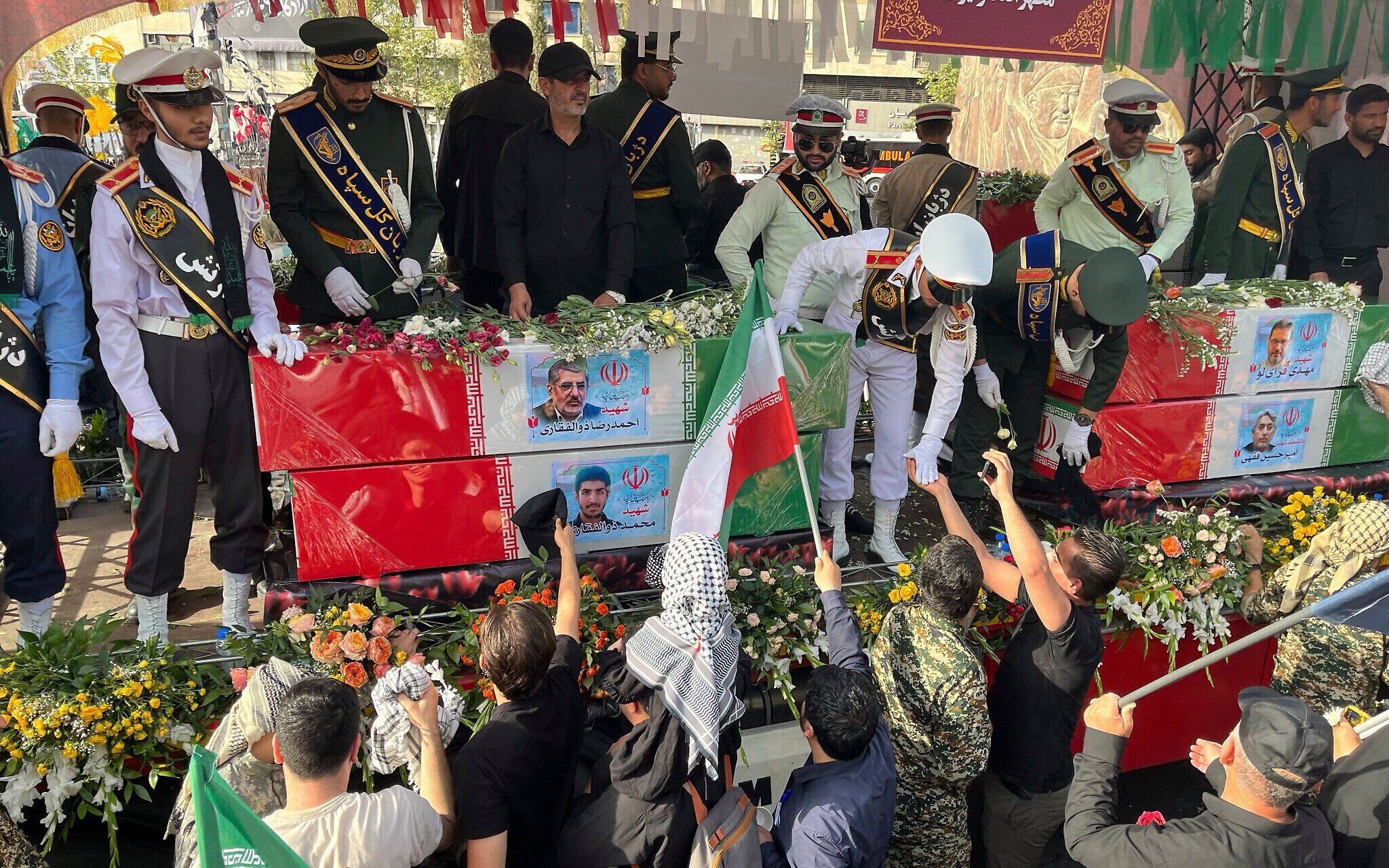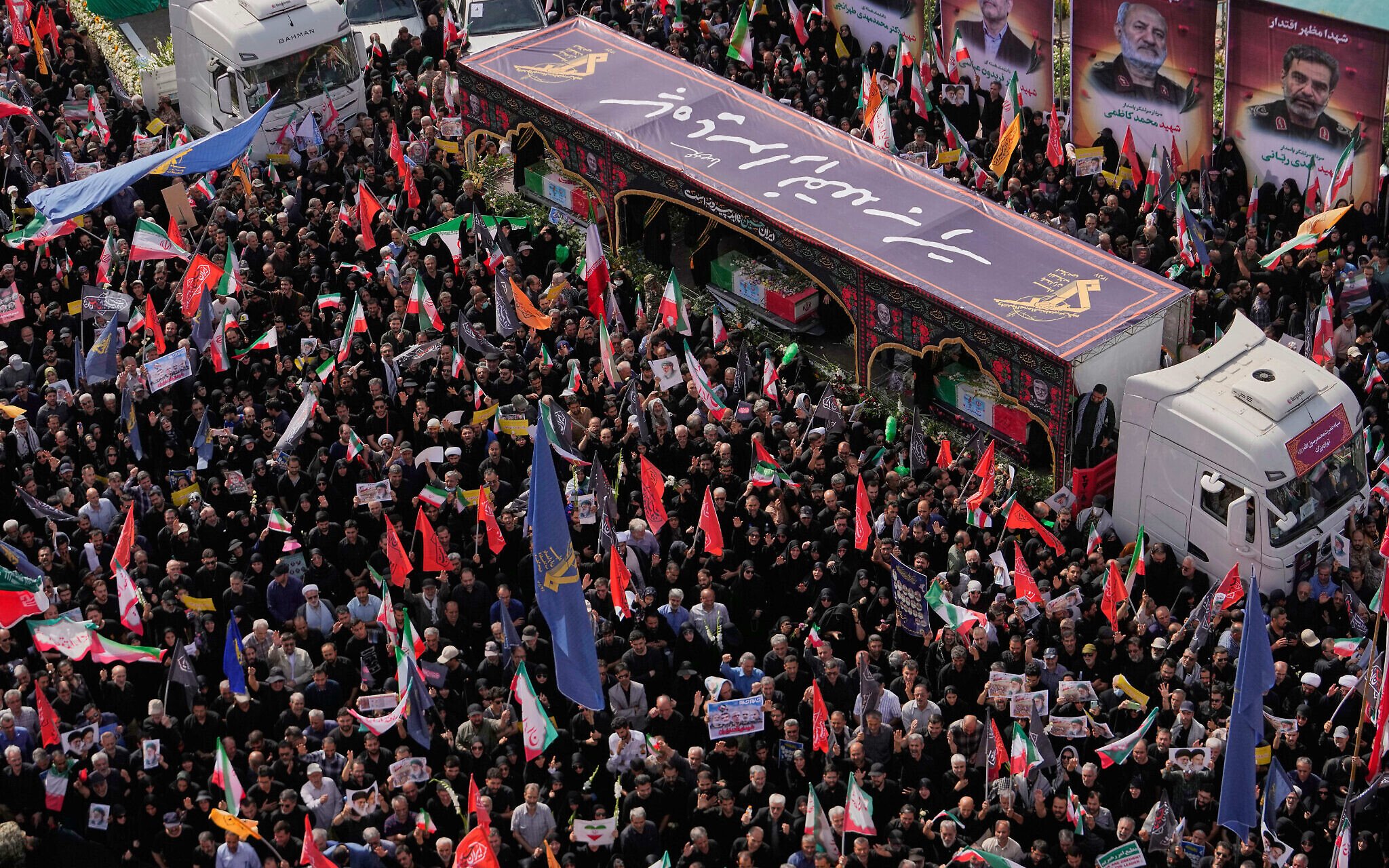


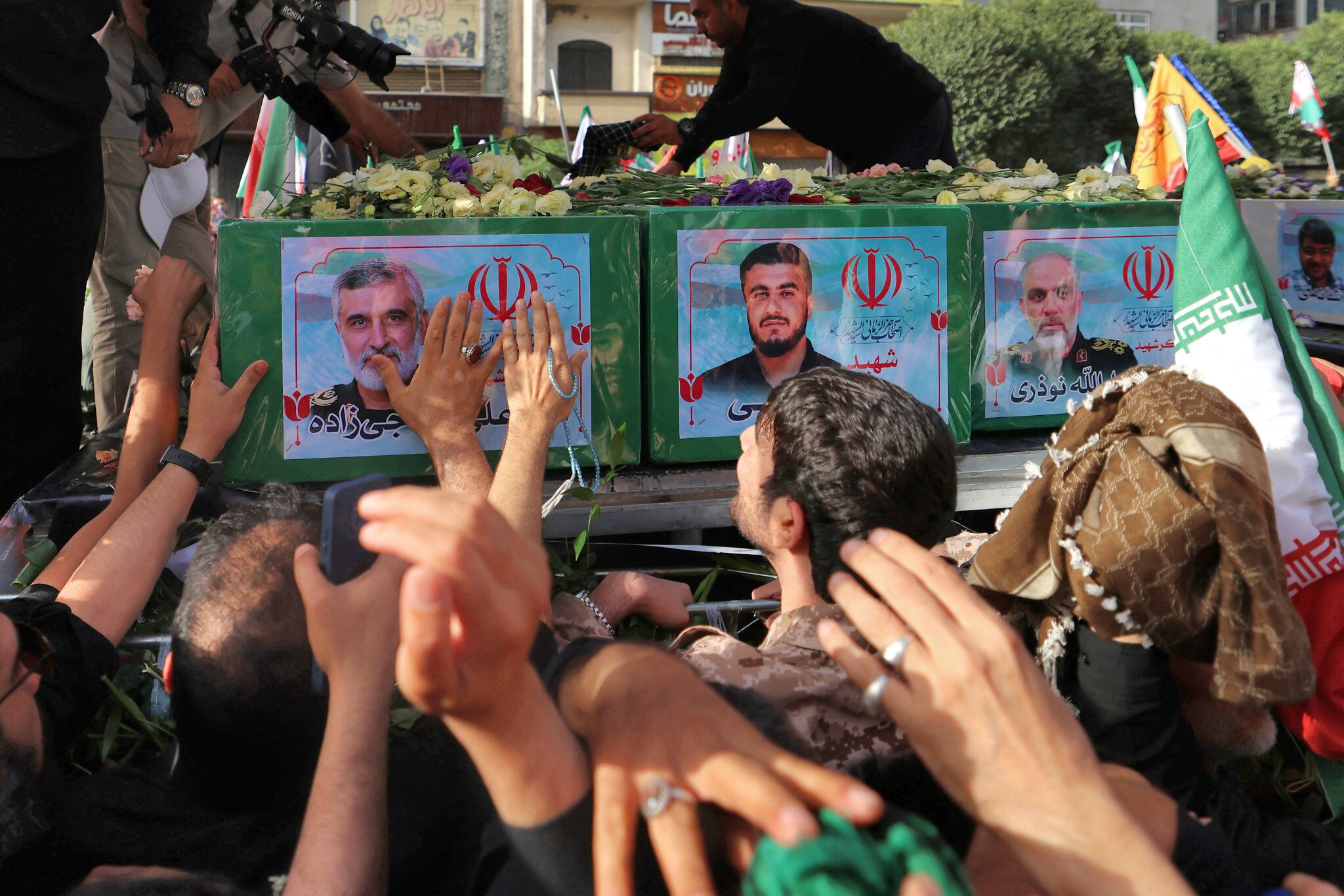
Thousands of mourners lined the streets of downtown Tehran on Saturday for the funeral of the head of the Revolutionary Guard and other top commanders and nuclear scientists killed during a 12-day war with Israel.
“The ceremony to honor the martyrs has officially started,” state TV said, showing footage of people donning black clothes, waving Iranian flags and holding pictures of the slain military commanders.
Iranian President Masoud Pezeshkian as well as other senior government officials attended the event.
Images showed coffins draped in Iranian flags and bearing portraits of the deceased commanders in uniform near Enghelab Square in central Tehran.
The caskets of Guard’s chief Gen. Hossein Salami, the head of the Guard’s ballistic missile program, Gen. Amir Ali Hajizadeh and others were driven on trucks along the capital’s Azadi Street as people in the crowds chanted: “Death to America” and “Death to Israel.”
Salami and Hajizadeh were both killed on the first day of the war, June 13, as Israel launched a sweeping assault on Iran’s top military leaders, nuclear scientists, uranium enrichment sites, and ballistic missile program which it said was necessary to prevent the Islamic Republic from realizing its avowed plan to destroy the Jewish state.
Also among the dead is Mohammad Bagheri, a major general in Iran’s Revolutionary Guards and the second-in-command of the armed forces after the Iranian leader. He will be buried alongside his wife and daughter, a journalist for a local media outlet.
Nuclear scientist Mohammad Mehdi Tehranchi, also killed in the attacks, will be buried with his wife.
Video on social media appeared to show the commander of the Islamic Revolutionary Guard’s elite Quds Force Gen. Esmail Qaani at the funeral. The New York Times reported early in the war, without citing sources, that Qaani was among the Iranian military leaders killed in Israeli strikes, although the IDF had not claimed to have targeted him.
There was no immediate sign of Iran’s Supreme Leader, Ayatollah Ali Khamenei, in the state broadcast of the funeral. Khamenei, who has not made a public in-person appearance since before the outbreak of the war, has in past funerals held prayers for fallen commanders over their caskets before the open ceremonies, later aired on state television.
Khamenei’s last public appearance was June 11, two days before hostilities with Israel broke out, when he met with Iranian parliamentarians.
On Thursday, however, he released a pre-recorded video, in his first message since the end of the war, filled with warnings and threats directed toward the United States and Israel, the Islamic Republic’s longtime adversaries.
The 86-year-old downplayed US strikes on three Iranian nuclear sites as having not achieved “anything significant” and claimed victory over Israel.
The head of the United Nations nuclear watchdog agency, Rafael Grossi, has characterized the damage done by American bunker-buster bombs to Iran’s Fordo nuclear site, which was built into a mountain, as “very, very, very considerable.”
Israel said it killed around 30 Iranian commanders and 11 nuclear scientists, while hitting eight nuclear-related facilities and more than 720 military infrastructure sites.
More than 1,000 people were killed, including at least 417 civilians, according to the Washington-based Human Rights Activists group.
Iran fired more than 550 ballistic missiles at Israel, most of which were intercepted, but those that got through caused damage in many residential areas and killed 28 people.
Saturday’s ceremonies were the first public funerals for top commanders since the ceasefire, and Iranian state television reported that they were for 60 people in total, including four women and four children.
Mohsen Mahmoudi, head of Tehran’s Islamic Development Coordination Council, vowed it would be a “historic day for Islamic Iran and the revolution.”
Authorities closed government offices to allow public servants to attend the ceremonies.
Iran has consistently denied seeking to acquire nuclear weapons. However, it has enriched uranium to levels that have no peaceful application, has obstructed international inspectors from checking its nuclear facilities, and expanded its ballistic missile capabilities. Israel says it has recently taken steps toward weaponization.

